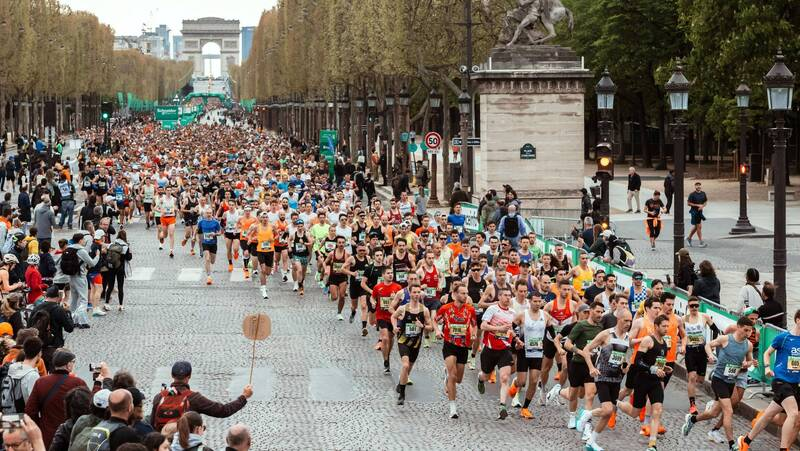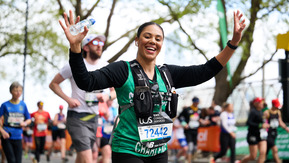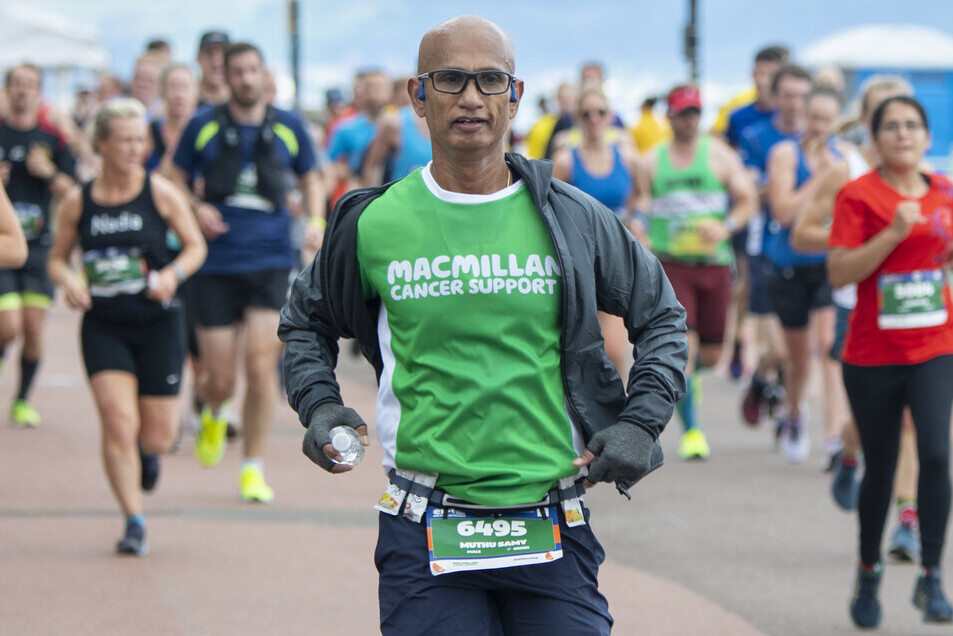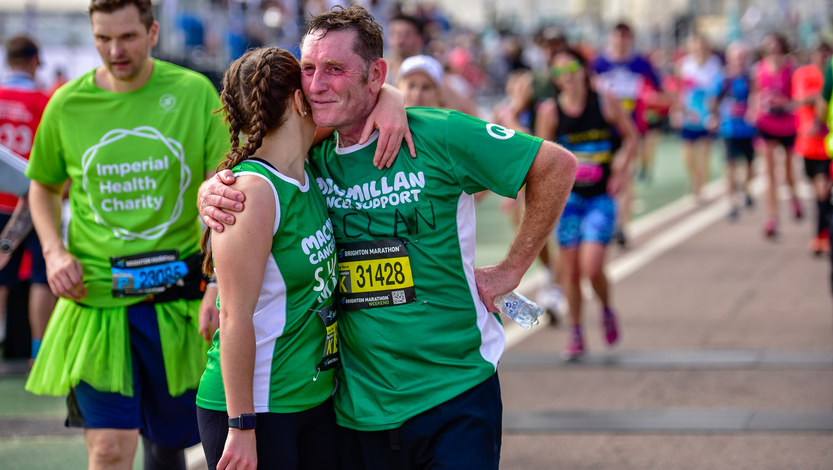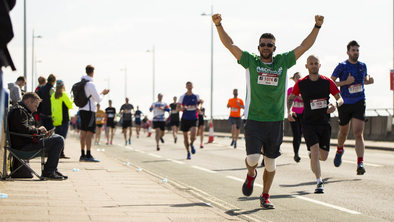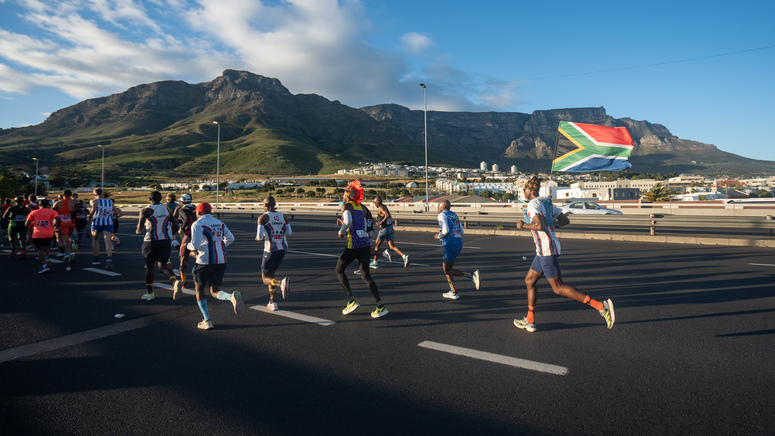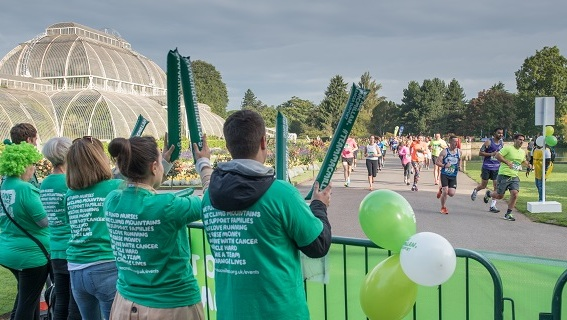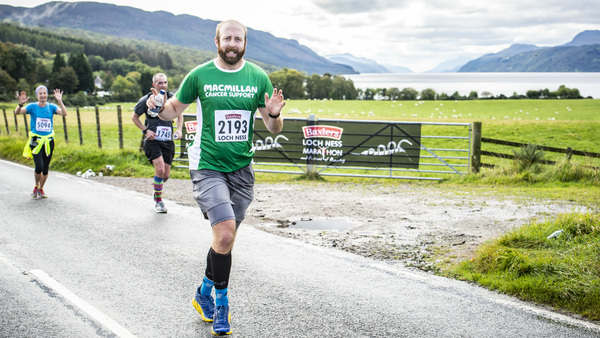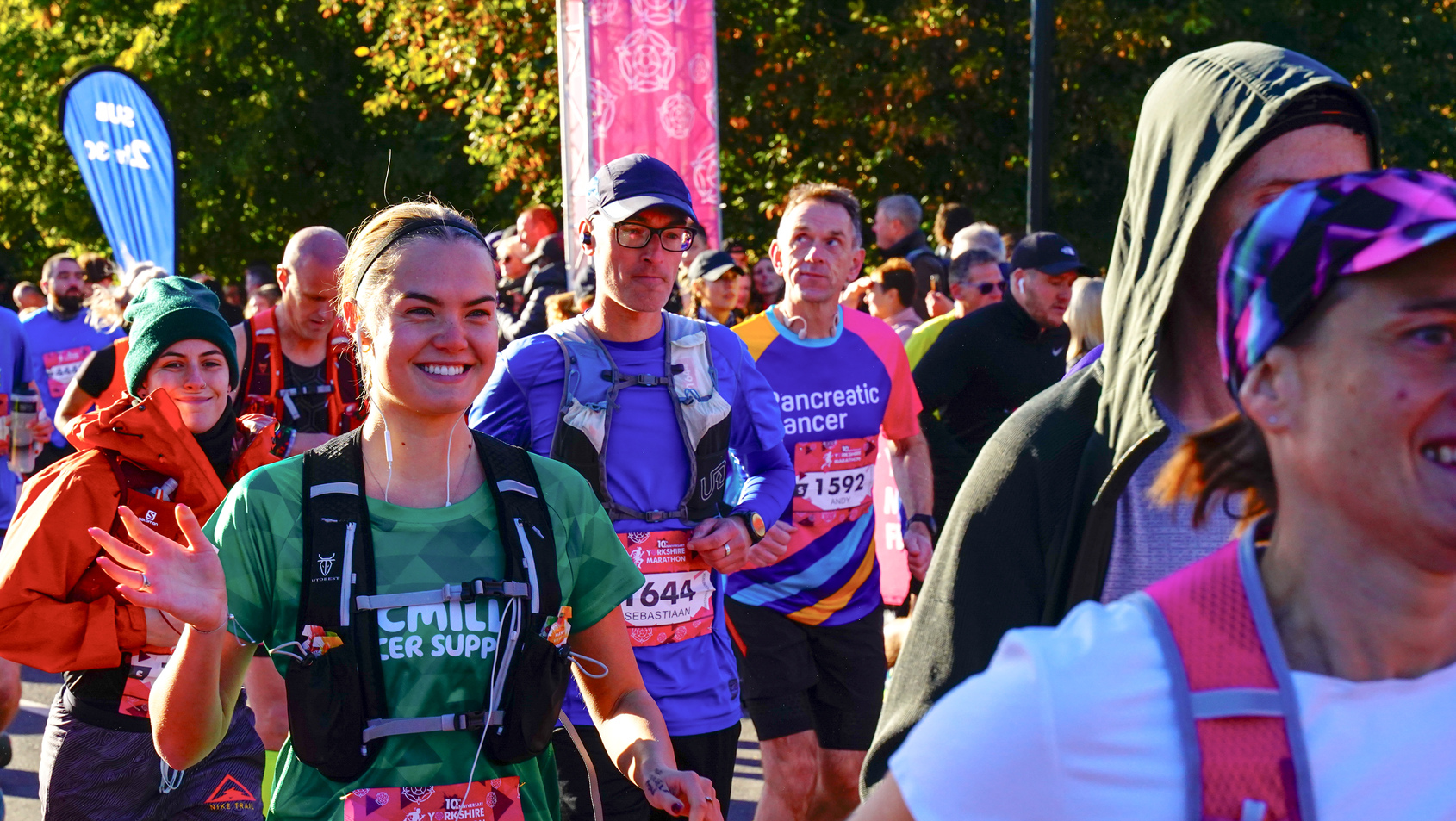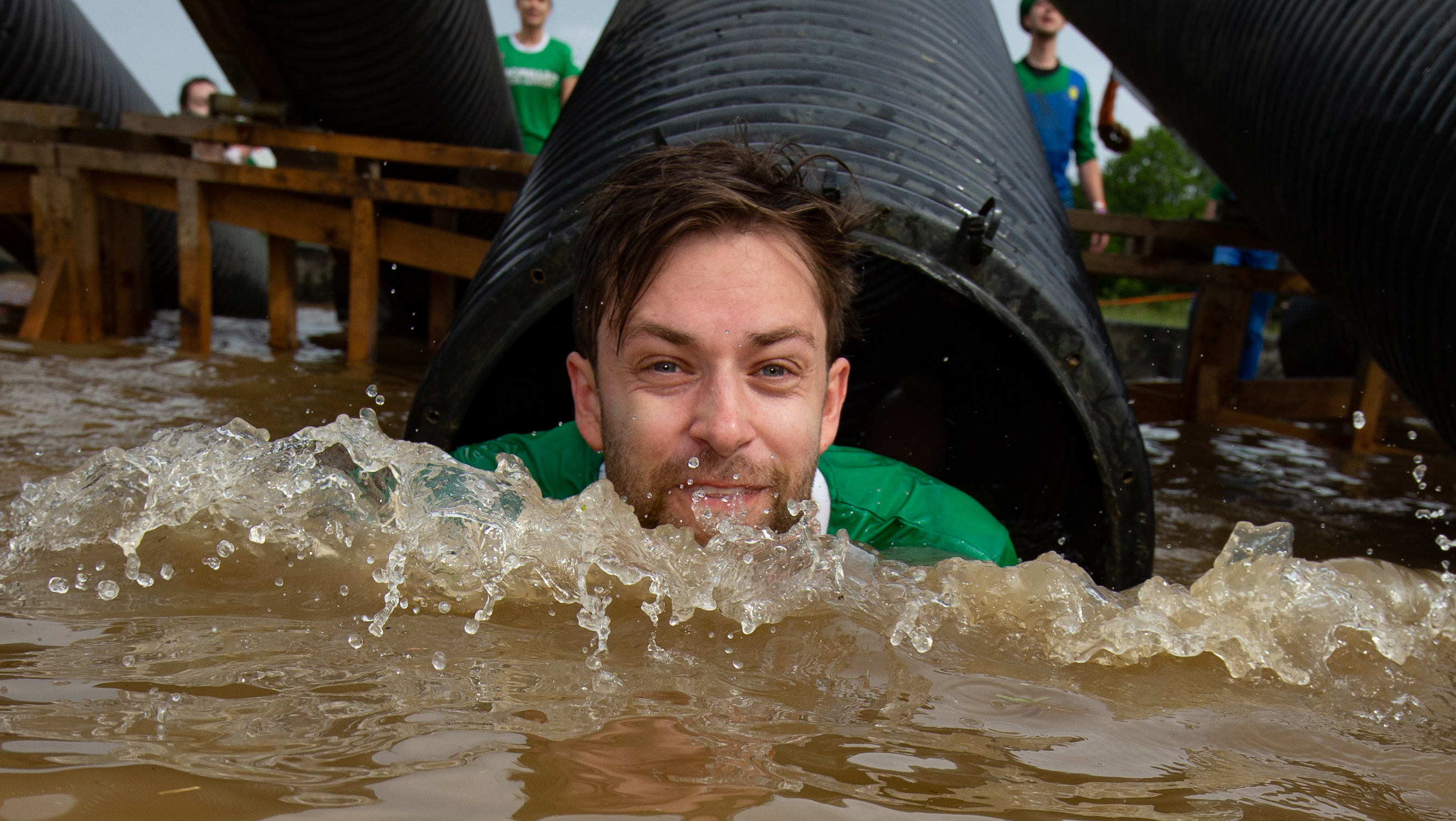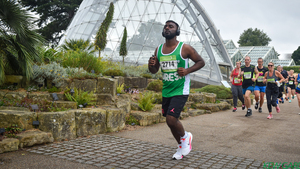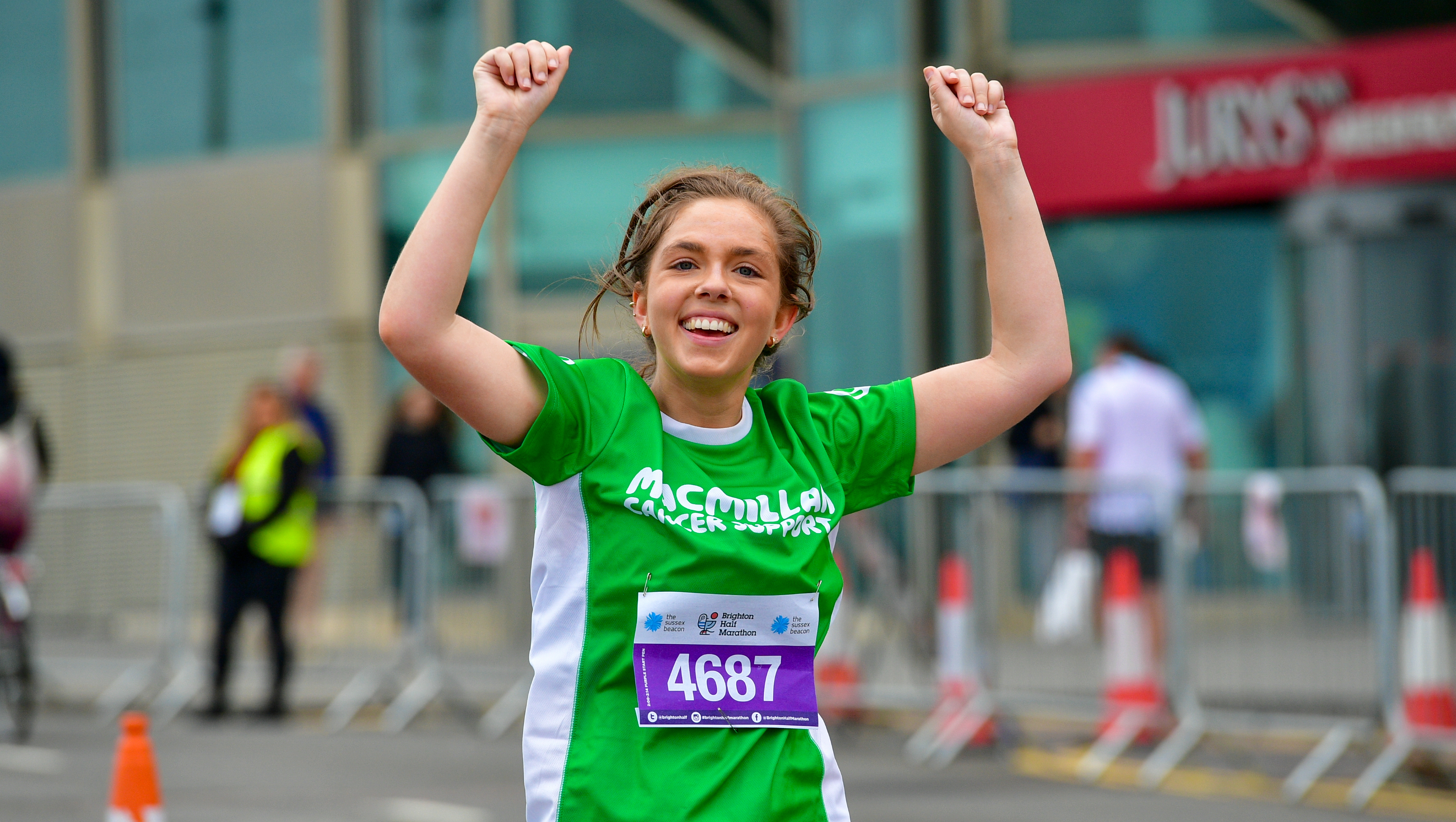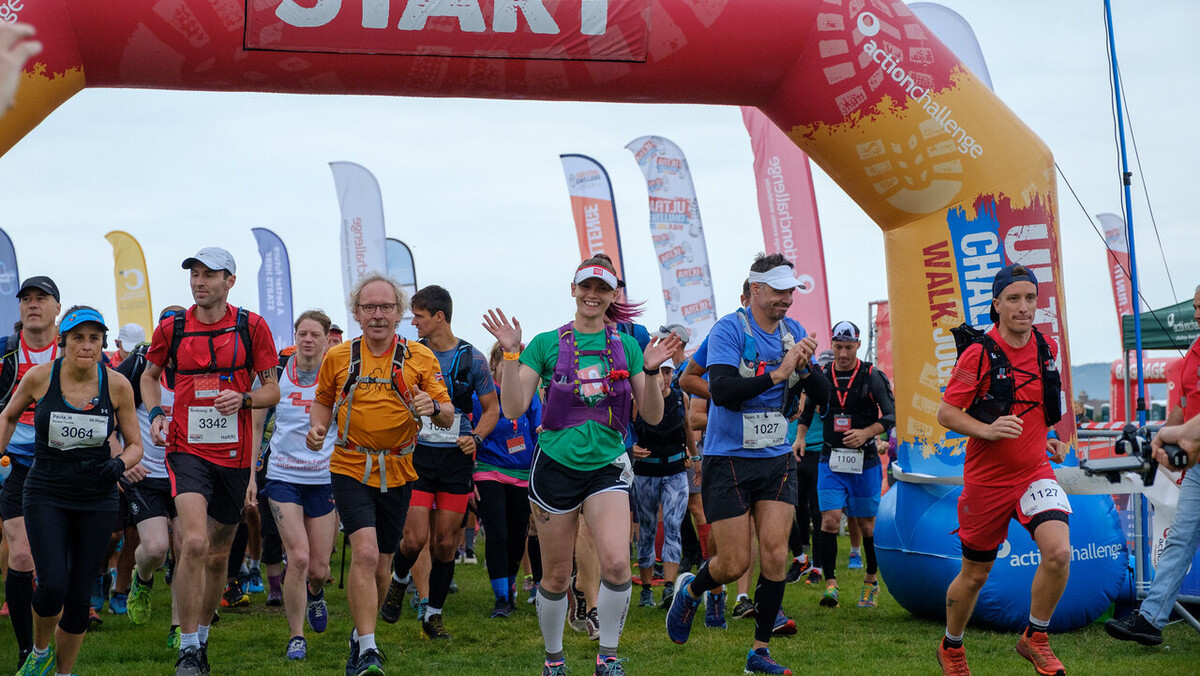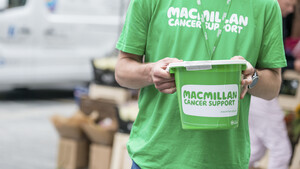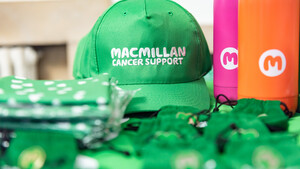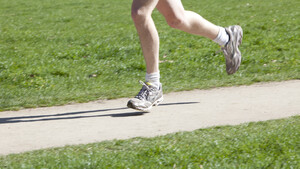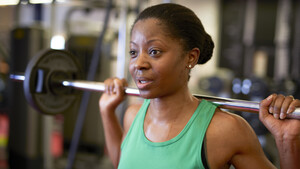
Marathon Charity Runs
Marathon events
-
Selling out fastParis Marathon12 April 2026Paris SE1 7UQ
-
adidas Manchester Marathon19 April 2026Manchester M16 0RP
-
Edinburgh Marathon 202624 May 2026Edinburgh EH1 3DG
-
Brighton Marathon 202612 April 2026Brighton and Hove BN1 6HN
-
ABP Southampton Marathon03 May 2026Southampton SO14 1NH
-
Leeds Marathon 202610 May 2026Leeds LS6 3BR
-
Sold outSanlam Cape Town Marathon 202624 May 2026South Africa 8050
-
Richmond Marathon13 September 2026Richmond upon Thames TW9 3JR
-
Sold outLoch Ness Marathon27 September 2026Inverness-shire IV3 5SP
-
Yorkshire Marathon18 October 2026York YO10 5DD
Marathon FAQs
-
How far is a marathon?
A marathon is:
- 26.2 miles
- 42.2 kilometres
- 105.5 laps around a 400-meter running track!
-
What is the average time to run a marathon?
Your fitness levels, age, sex and musculoskeletal health can affect how long it takes for you to run a marathon.
Try to aim for the global average or above. This stands at 4 hours 21 minutes:- Men’s average is 4 hours 13 minutes
- Women’s average is 4 hours 42 minutes.
The current world records for the marathon are held by:
- Kelvin Kiptum at 2 hours and 35 seconds.
- Ruth Chepng'etich at 2 hours, 9 minutes and 56 seconds.
Regardless of your running time, you should be proud of whatever time you finish your incredible achievement in!
-
How do I get a Macmillan charity place for a marathon?
Getting a charity place is a fantastic way to fundraise for people living with cancer.
To get a charity place, you can either sign up for your marathon on our website or through the event organisers’ website. Registration fees and fundraising pledges will vary between different events.
You will receive a fundraising pack with great tips to help you hit your target and training advice best suited your challenge.
If you have your own place in the race already and would like to run for us, you can still sign up for the marathon event. There's no minimum sponsorship amount, just fundraise as much as you can! -
How long do I need to train for a marathon?
This will depend on your experience, goals, general fitness and how consistent you are with your training. Some people traditionally progress from 5k runs, then 10k runs, then half marathon to a marathon.
As you build up for the marathon, your body and mind need to be ready for the challenge ahead so it’s important to follow a strict training plan.
A complete beginner can go from zero to marathon finish line in around six months depending on health and a consistent training schedule.
Intermediate runners can cross the marathon finish line in 16-20 weeks.
Experienced runners can be marathon ready in 12 weeks.
Check out our marathon training plans to get you started on your run for charity. -
Am I allowed to walk during a marathon?
Many events allow runners to walk as it’s not unusual to take a short walking break during running events.
You may consider walking to find your breath, get hydrated or relieve your muscles. Some runners choose to run in intervals of walking and running to change up the pace.
Even if you decide to walk the whole 26.2 miles, it’s still a good idea to train. The distance and time spent moving on your feet can take a huge toll on the body.
It’s also worth checking with the event organiser if the marathon has a time limit if it’s on closed roads. -
Can I wear headphones during a marathon?
It’s worth checking what your running competition allows. Some running events advise against wearing headphones during marathons to make the event safe for all runners.
Your event may give out announcements and audio cues which could be missed if runners are wearing headphones. You and other runners may also be at greater risk of collisions and injury if headphones are worn during a road race. -
How many calories do you burn doing a marathon?
For every mile you run, you burn an average of 100 calories. This works out at over 2600 calories burnt during your 26.2-mile race.
Your body weight, speed and terrain you’re running on also impacts how many calories burnt. If you’re running on a steeper incline or at a faster speed, you will be using more energy which means more calories will be burnt off. -
What should I eat before my marathon?
26.2 miles will require a whole lot of energy to get you past the finish line, so it’s important you fuel yourself properly to get the best out of your race.
Your pre-race evening meal before your marathon is an opportunity to get an energy store for the event. Aim to eat:- Carbohydrates to keep your energy and blood sugar high. These can be found in wholegrain foods like brown rice, brown pasta and sweet potato.
- Proteins to promote muscle growth and repair. Try eggs, fish or poultry.
- Fats for metabolic fuel. A small amount features in a balanced diet and goes a long way. Seeds, nuts, avocado, salmon and mackerel are good sources.
- Vitamin and minerals to help maintain bone strength and turn food into energy.
On the morning of your marathon, try to eat breakfast around 3 hours before and a light snack an hour prior.
-
What should I not eat before my marathon?
Avoid foods with high fat, fibre and protein right before your event. Your body will spend energy processing this food, taking away from energy needed for your marathon performance.
Caffeine in large amounts is also not recommended as it can cause a stomach upset and elevated heartrate. -
What is a marathon pace?
A marathon pace is the running speed you can steadily hold for the whole 26.2 miles.
Your pace can depend on your body weight, speed, the terrain you’re running on and even the weather. It can take some time to gauge what your average marathon pace is, so use your pre-race training to figure this out. Running apps like Strava or Nike Run Club can help guide you on what your marathon pace is. -
What should I wear while running my marathon?
Make sure your running shoes are properly fitted and are well worn in a few months before your marathon. You’ll also need to consider the weather on race day.
If it’s warm, you could wear:- A technical running vest
- a cap or visor
- sunglasses
- sunscreen
- Lycra shorts
If it’s cold, you may want to wear:
- a long-sleeved wicking t-shirt or thermal top
- a wind-proof running jacket
- gloves
- long socks
- running leggings.
Comfort is key, so make sure you wear what’s best for you in the weather conditions.
-
What should I eat after a marathon?
Straight after a marathon, make sure you eat carbohydrate rich foods like bread, raisins, bananas or energy bars. You should hydrate with water or a sports drink to replace moisture and minerals lost through sweat.
26.2 miles of running takes its toll on the body and you will need to refuel after this strenuous activity. Your post-run intake should:- Replace glycogen in the liver and muscles. Glycogen is the energy stored in your body that fuels runs.
- Repair micro-tears in your muscles with proteins.
- Replenish lost minerals, mineral and electrolytes.
-
How long should I rest after a marathon?
Some experts suggest one day of rest for every completed mile – that’s 26 days!
However, if you’re itching to get back out there for light jogs or walks, you should take at least one week off to recover. When you do get back to running after you’ve rested, you should ease yourself in to avoid injury.
While recovering, you may want to do some low impact exercises like swimming or weights to keep fitness up while resting.



